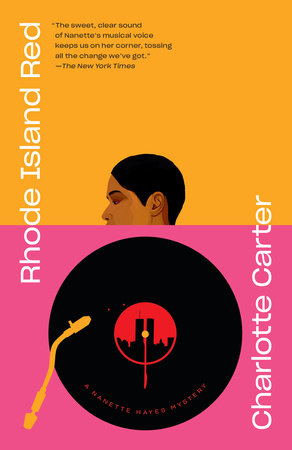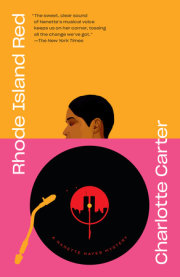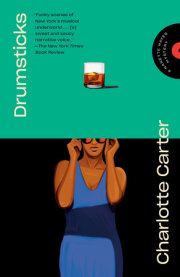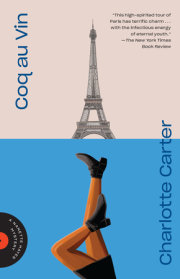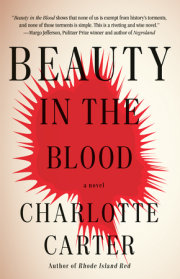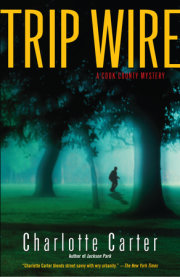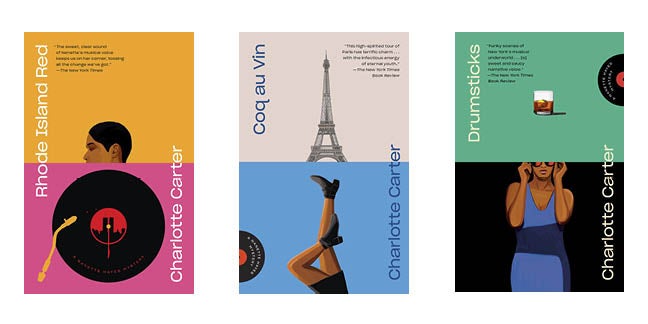CHAPTER 1
I mean you
Ask any Negro. They’ll tell you: a woman does not play a saxophone.
Except for me.
Actually, I don’t play sax. It’s more like I noodle. I never studied the horn, but I can get through a “Stars Fell on Alabama” or a “Night and Day” with little or no problem. I was a far from brilliant student of the piano but I can sight read my way through a whole lot of Bach or Bud Powell. See, I’m naturally musical—not talented—I didn’t say I was talented—just musical. At one point—what was I? Three? Four years old?—my father thought I might have been a genuine inheritor in that endless line of Black musical geniuses.
But not too many of us blow tenor in front of the Off Track Betting Parlor on Lexington Avenue with a battered old hat inverted on the sidewalk. No, I think I pretty much have the exclusive on that one.
But, wait. Let me explain a few things.
I’m not a homeless beggar. I play music on the sidewalks of New York but I don’t sleep there. I’m five feet ten inches tall, I turned twenty-eight in January, I’m more or less a Grace Jones lookalike in terms of coloring and body type (she has the better waist, I win for tits), I’m the former second runner-up in the state spelling bee (I was twelve then), hold a degree in French with a minor in music from Wellesley (scholarship all the way), and I live in a fairly low-rent, nondescript walk-up at the edge of Gramercy Park, where that neighborhood starts to bleed into the Methodone-rich valley of drug treatment facilities, hospitals, and drooling academies at First Avenue.
You know what jazz musicians are like. Always trying to stay cool in the face of the worst kind of hardships. Well, just a couple of days ago, I had come up against a pretty hard one. I was dumped—hard.
I thought I looked especially cool that day.
Mostly because of the two-hundred-dollar Italian shades Walter had mistakenly left in the apartment when he moved out—again. This break-up was not the kind of nuclear dogfight we had had in the past. It was just about that low-level hostility toward each other for months on end; that cold kind of resentment; that sex that’s still good but just not right. And then one morning when he goes to work he’s carrying a suitcase with his stuff in it along with his briefcase.
Not to worry: Walter Michael Moore had someplace else to go. He is very good at hedging his bets, always has been. He never let go of the small rent-controlled place up on Amsterdam and I was pretty sure that around the next corner there was another lady quite willing to sacrifice a little closet space for his Paul Stuart suit.
No, no need to worry about Walter. Matter of fact, fuck Walter. It was yours truly who now had to worry about keeping body and soul together. Who needed Walt’s four fifths of the rent and groceries like Abbott needed Costello. Who wasn’t currently employed—okay? Who never really got the hang of saving money and had never once been accused of being too future-oriented.
I had long ago incinerated my bridges at the temp agency. The translation gigs I had depended on for the past year were drying up. And how could I ask my mother for anything when, one, she was struggling with bills herself and, two, I was lying through my teeth to her on a regular basis about the terrific part-time position I had teaching French at NYU?
Speaking of “Body and Soul,” I was longing to hear it. Oh, I knew I wasn’t ready to play it, I just wanted to hear it. If I kept practicing, I figured, I would be able to do a passable imitation of Ben Webster’s licks on it. But it would be just that—an imitation, a homage.
Not that Webster, fabulous as he was, is god number one in my pantheon. There’s Parker and Rollins and Coltrane . . . well, the list goes on endlessly. I think it’s a good thing to have an open-ended pantheon. When it comes to the piano, though, it’s Monk whom I have accepted as my personal savior. All that quirky, absent-minded professor, mad as a hatter, turn-everything-on-its-head brand of genius. Oh, do I love that man. And what about doomed, beautiful, young Clifford Brown with his enchanted horn and Miles with his evil self and—
I’m getting a request from the portly old alcoholic who swings by my corner a couple of times a day. “Violets for Your Furs,” he wants to hear. How sweet. I play it and he gives me five bucks and blows me a kiss in the bargain. Bless his heart, as my mom would say.
Long day. Long day, today. Lot of time to think about all kinds of things: my last trip to France, a couple of years ago; that old white Saab that this guy Jean Yves had—sitting in it, waiting for him, eating french fries while he borrowed money from a wealthy friend who lived on the rue Madame; my old piano teacher, dead; the word I blew at the spelling bee—logarithms; cigarettes, and how I missed them; Walter’s chest, the same color as powdered cocoa and his chipped tooth and soaping his back and the two of us going out to eat.
I know how much it irritated him when I shaved my head. It’s odd, isn’t it? Black men like white women’s hair, and white guys like Black women without hair. Not an iron law, I realize, but it’s one of my theories that bears out time and again. Anyway, my locks are coming back nicely now. That kind of gamine look you saw in the magazines a couple of years ago. Only the rest of the body is more Maasai warrior than Kate Moss.
Good thing I had those dark glasses. All those melancholy, lost, private things going through my head. Things I wouldn’t want anybody to read in my eyes.
I went on playing but I was kind of on automatic pilot.
No doubt about it, I’d come way down in the world from my bourgeois roots.
So there I was on that September afternoon, trying to breathe some life into my limited repertoire of standards. “Mood Indigo” was getting no respect. Not even my spare, self-mocking medley of Monk favorites could impress the ignorant passers-by. In a desperate move, stealing Jimi Hendrix blind, I switched to “America the Beautiful.”
Forget it. The streets were teeming with humorless patriots.
By four o’clock, I had about twenty-one bucks in the hat.
I really started to curse Walt about four-thirty.
People take quitting time seriously in this town. By six o’clock the street was empty. I knew I was licked; there wasn’t going to be no Mount Everest of bills in my hat today. In the growing dark I bent down to collect the day’s pathetic take.
“You can’t play worth shit, man.”
I looked up quickly to see who had spoken. He was a scrawny young white man, lounging against a parking meter and chuckling aloud. I noted his longish sandy hair, his brown suede jacket with fringe, and his dirty Converse running shoes. He looked to be about twenty-three or -four. He looked to stand about five foot seven or eight.
I stiffened. “What did you say, fool?”
He went on laughing at me, unfazed. “I said you sound like shit. And where did you get that horn at—L.L. Bean?” He began calmly adjusting the many cheap leather bands around each of his wrists.
It wasn’t until that moment that I spotted his overage saxophone case. Damn—he would be a musician. So my humiliation was going to be complete. I didn’t answer him but began to transfer the change to my pocket.
“You know, you’ll never make any bread around here,” he said, “even if you could play a lick. Too far east,” he explained smugly. “You gotta go over to Fifth. Sixth and Seventh is good, too—up by Carnegie Hall.”
Still ignoring him, I started downtown, toward my apartment.
“Wait a minute!” he called out suddenly. “Hey, where you going! Wait a minute.”
I looked back over my shoulder. His voice and manner had suddenly changed from pesky terrier to lovesick Great Dane.
“Just a minute, willya. I gotta tell you something.”
“What?”
He paused to take a cigarette out of the pack of Marlboro Lights he carried in the waistband of his black jeans. “I play . . . on the street . . . just like you. Well, not just like you. I’m good. But I just gotta tell you I . . . I’m desperately in love with you. Know what I mean? Totally. Desperate. I mean it, man. And if you don’t take me home with you I’m going to just step in front of the downtown fuckin’ bus.”
“You got a token?” I asked and kept moving.
I’d gone only about ten paces when I heard a woman scream. I whirled.
He had leapt out about six feet into downtown traffic, in the path of the Lexington Avenue bus. It had swerved and just flicked his arm, but with enough force to slam him back onto the sidewalk about two feet from where I stood. He lay there on his back clutching his horn.
Shaken, I knelt and raised his head a few inches off the ground.
“Hey,” he said, grinning, “I been watching you all day. My name is Sig. And you have nothing to worry about.”
“I have nothing to worry about?”
“Yeah. My old lady put me out because I took a pledge of celibacy. So my love for you is pure. I want you for your mind.” And he gave me an angelic, lying smile.
“What’s the rest of this story?” I asked wearily.
“I need a place to crash, one night only. I’m tired as hell. I could use something to eat. You look kind. I was hoping you’d feel sorry for a fellow musician.”
For a long moment I stared into his diamond-bright green eyes. Then I let his head fall back onto the pavement. I asked myself, Nan, what is the stupidest conceivable decision you could make in this situation?
My next move seemed clear.
My apartment is a floor-through on First Avenue between Seventeenth and Eighteenth. Pretty good morning light. Not too noisy on the front. Furnished in high sharecropper chic.
Sig was cross-legged on the kitchen floor. It turned out his head was bleeding from the fall he’d taken, so he sat pressing a folded patch of gauze against his hair. He studied the walls while I put the finishing touches on one of my signature dishes—fresh sardines deep-fried in Greek olive oil and thin linguine with garlic and little green peas.
“I like that one!” he said, pointing at the Huey Newton poster that I’d hung upside down.
“That one’s great, too.” He meant Lady Day near death, which had cost me about a hundred dollars to frame.
“I don’t know about that one,” he said doubtfully, nodding at Walter’s autographed photo of Magic Johnson with his bad boy guru smile.
“Dinner,” I announced. “Get up off the floor.”
I set a steaming plate in front of him along with a cold glass of cheap white wine. He made a face.
“What is this? This is not the kind of stuff you feed a street musician. We need more protein . . . like cheeseburgers.”
I cursed him in gutter French.
“Did you call me something bad?” He adjusted the makeshift headband he’d tied on in order to keep the gauze in position. “Well, that’s okay. I still love you desperately.”
I couldn’t help but laugh. Up close, I could see that little Sig was quite a bit older than he looked at first glance—what said it were those little drinking lines around the base of his nose. There was something else that did not escape my notice: tell-tale wrinkles, dirty hair and all, little Sig was quite pretty. I wondered what he’d done to make his lady put him out.
He ate his food like a good boy, even paying me a compliment or two on it, after he got used to the taste.
“Sweetness,” he said, wiping his mouth, “if you make a living playing that sax, I’m Louis Armstrong. Who are you really?”
“Really? My real name is Simone.”
“No kidding? Simone What?”
“Signoret.”
“Huh. That’s kind of a pretty name.”
This child, I decided, was from an outer sphere.
Then, while I did the dishes, he began to rattle on about the saxophone and all its glory. God, what a torrent of reverently uttered names and birthplaces, record dates and sidemen. Coleman and Prez and Bird and Sonny and Jug and Trane and Bippity Boppedy Boo. I finally sent him off for a shower, hoping it would calm him down.
I picked up the bunch of brown straps he’d taken off his wrists and left on the kitchen table. They were made of flimsy Indian leather, still stiff with newness, and the head of a bald eagle was embossed on each strap. It made me smile; I used to have a thing for cheap bracelets, too. And I also liked wearing them in bunches. See, just wearing two or three of them won’t get it. You have to put on dozens. For some reason, the sheer number of them cancels out their essential tackiness.
I lit one of Sig’s cigarettes and sat down to look at my mail, all those bills I had no way of paying now that Walt and his salary were gone.
I had a second smoke and polished off the lousy chardonnay.
He reappeared twenty minutes or so later—calm, clean, hair slicked back and glistening, torso bared—and a nice torso it was—thin but basically flawless.
One of my extravagant white Fieldcrest bath towels was knotted low on his hips, and inside it, where stomach meets thigh, was a little palm tree. He looked at me while I looked at him.
“Ah,” I said, and kept looking.
He smiled slyly. “I am your slave,” he pronounced.
“Ah,” I said.
“Where’s the bedroom?”
“Mine?” I asked after a minute. “Or yours?”
“Ah,” he said sadly, and shrugged.
Yes, thank God he was older and more sensible than he looked.
We took the old futon out of the hall closet and rolled it out on the living room floor.
“Listen, Sig,” I told him as I turned out the light, “coffee’s at seven-thirty. Then out you go.”
“But I’m your slave—”
“Hey, Siggy? Being a person of color, that is not my favorite word in the English language.”
I took his laugh as a sign that he was finally giving up.
“Gets pretty cool in here at night,” I said. “Summer’s over, you know.”
“Guess I better put on my pants then.”
“Guess you better.”
Around 3 a.m. I woke up achy and shivering. I felt the cold air creeping around the corners of my room like a wild cat prowling a canyon. I wondered if that fool had gone during the night and left the apartment door open.
Copyright © 2021 by Charlotte Carter. All rights reserved. No part of this excerpt may be reproduced or reprinted without permission in writing from the publisher.

